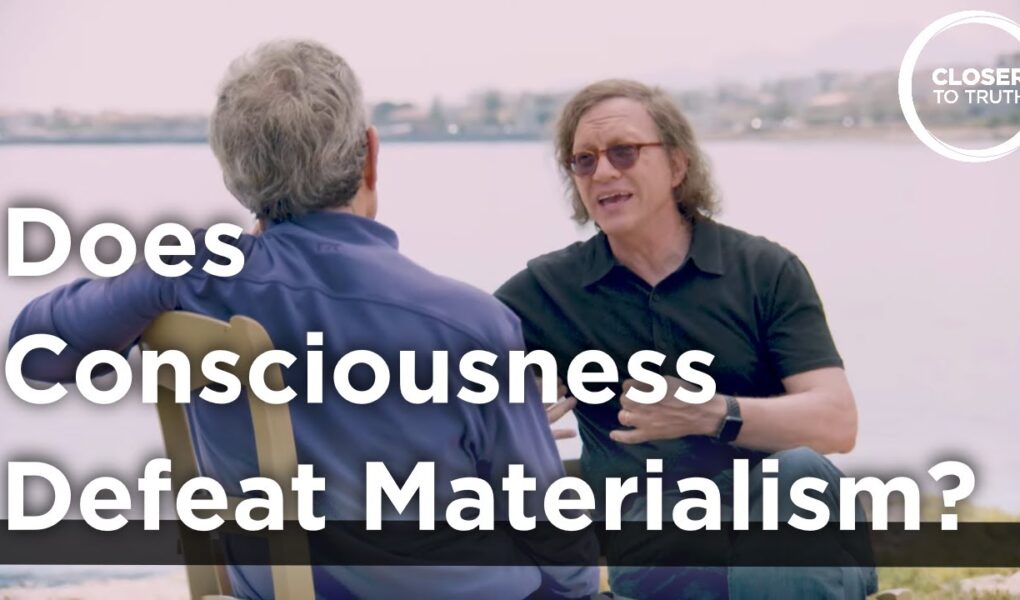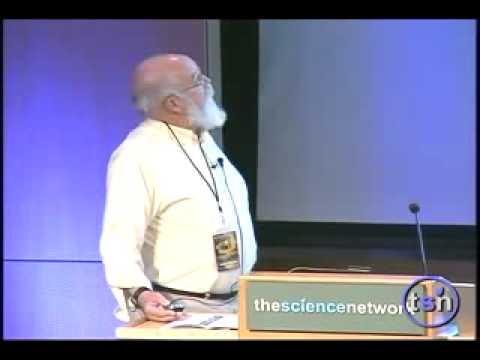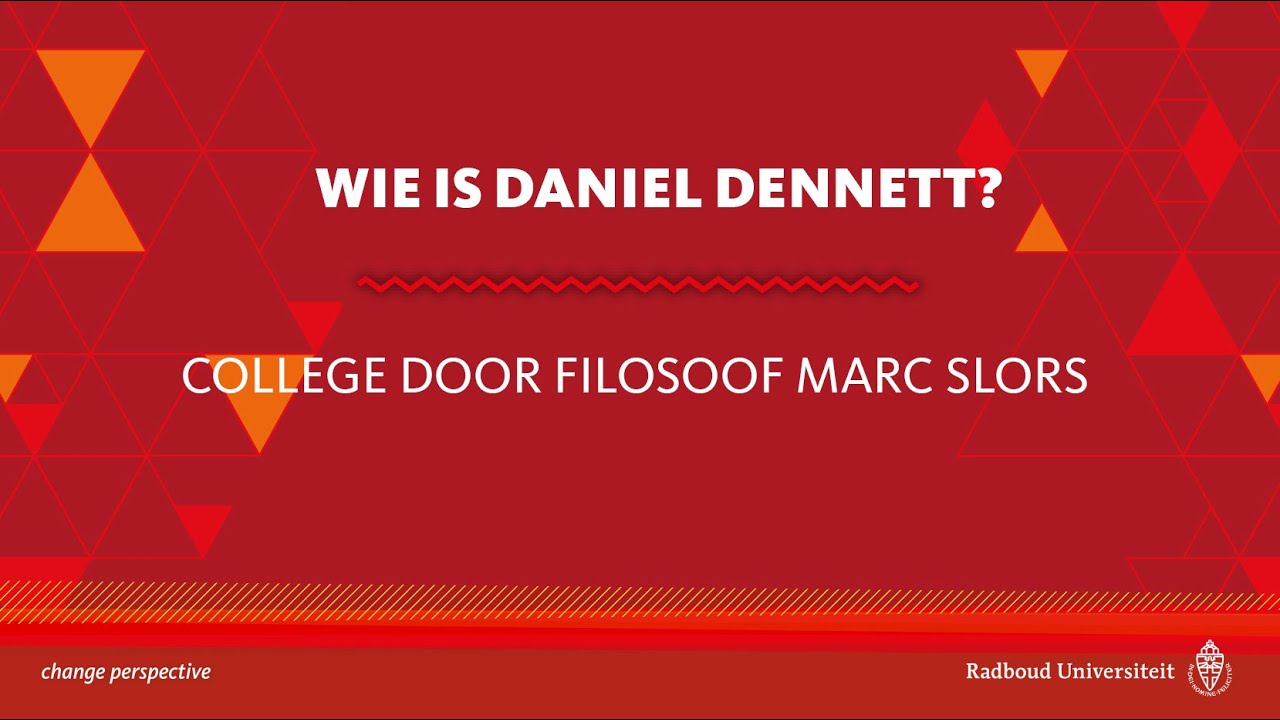Closer To Truth
Closer To Truth has just launched a new website! We can’t wait for you to see what we’ve been working on. New seasons (including the web debut of Season 21), interviews, topic guides, curated playlists, candid conversations, book excerpts, essays, and announcements. Visit today: www.CloserToTruth.com
What would it take for consciousness to defeat materialism or physicalism? This is the worldview that only the physical is real, which is the dominant view of scientists and philosophers. Here’s what it would take: our inner awareness, our experience of what things feel like, could not be explained by physical brain alone That’s it. A tall order, though.
Free access to Closer to Truth’s library of 5,000 videos: http://bit.ly/376lkKN
Watch more interviews on understanding consciousness: https://bit.ly/3XTARJH
Tim Maudlin is a philosopher of science and a Professor of Philosophy at New York University.
Register for free at CTT.com for subscriber-only exclusives: http://bit.ly/2GXmFsP
Closer to Truth, hosted by Robert Lawrence Kuhn and directed by Peter Getzels, presents the world’s greatest thinkers exploring humanity’s deepest questions. Discover fundamental issues of existence. Engage new and diverse ways of thinking. Appreciate intense debates. Share your own opinions. Seek your own answers.
Source



If consciousness evolved from matter, as most materialists believe, then it would be easy to explain as anything whose original is material or elemental can be scientifically studied and explained. The reason it cannot be studied or explained indicates that it predates matter and the material world of forces; the strong, neutral and weak and the elemental world they engender.
When we can explain the neural correlates of consciousness, we're done. That's all there is. The brain produces our experiences. They feel like something. Those feelings may trigger behaviors. That's what they are for. Mulling over this reality as if it were some deep mystery is like the gorilla beating his chest in front of a mirror. He confuses the reflection with an actual gorilla. Our self-awareness produces the mental analog of this reflection. Joscha Bach captures the idea well when he says "Only software can be conscious". Here he describes it at greater length:
"At some point, you can collapse the division between a personal self and world generator again. (He says "again" because we are not born with a self-concept. It must be developed.) A lot of people get there via meditation or some get there via psychedelics. Some of them by accident. And you suddenly notice that you are not actually a person, but you are a vessel that can create a person, and that person is still there. You observe that personal self, but you observe the personal self from the outside and you notice the representation. And you might also notice that the world that is being created is a representation. If not then you might experience that I am the universe. I am the thing that is creating everything. And of course, what you are creating is not quantum mechanics and the physical world. What you are creating is this game engine that is updating the world and you are creating your valence, your feelings, and all the people inside that world, including the person that you identify with yourself in this world."
There are no laws of physics, or laws of nature — there are only laws of consciousness and our ever expanding grasp thereof.
Physicalist idiocy is looking for the meaning of the novel in the cellulose structure of the paper it's printed on, the shape of letters it's typeset in, in the grammar of the language, in the taxonomy of the animal whose skin went into the leather binding — and not in the human culture, a tiny slice of which is captured in the narrative.
pure gold- the problem lucidly explicated – makes all the other interviews on this matter redundant – full circle Robert methinks!!!!
Are we gradually coming around to the possibility that we exist outside of our bodies (non- local consciousness) maybe a physical body is just a way of enacting our consciousness !
Maybe death is just “a casting off” of the physical but we continue outside of a physical state.
Who was it that said “ I can live without my body but my body cannot live without me”
There's a difference between
what's happening in the brain
and
how does it feel.
Or other example
I listen to two pieces of music.
One gives me the feeling of overwhelming joy
the other annoys me to death.
How do you explain this phaenomenon?
From the view of the brain?
From the view of the musical score?
From the data of the soundwaves?
From the view of a newborn baby?
I really hate watching physicalists spin their wheels over and over. It's time to open new doors…..new tools new generations of physicists that are willing to ask and research those concepts that were once considered taboo. 💯
Well, he´s just talking a out animals and pain. but human consciuosness is quite another thing. Anyhow he has no argument against the emergence of consciuosness
Please objectively and unambiguously define Consciousness___________________.
Quantum theory seems strange and counterintuitive, but we should press for ontology and explanation. Consciousness seems strange and counterintuitive, but we should conclude physics 'in principle' can't ever explain it? Not having a conceptual connection seems like weak evidence to take the route Maudlin avoids in realm of foundations of physics.
Monistic idealism!
Material can't exist without qualia, because material can't exist without attributes. Everything in the material world has an attribute, and what are attributes? They are fundamentally abstract. Even space itself is an abstract attribute. Of course it obeys internally consistent rules… but so does any "subjective" perception (it obeys the rules of that perception). There is nothing "definitive" and "ultimate" about the attributes/properties of physical reality compared to an imagined reality or other concept. It just happens that since we live in one universe, it follows consistent rules between all of us, and therefore seems "definitive", but the actual properties are just as "subjective" as qualia are.
Since anything that exists must exist in the most ultimate of realities (by definition of the ultimate reality containing everything possible worth containing), we will find that at least some part of our being will be completely logical and nonparadoxical, hence everyone's conceptions about physical reality being consistent (assuming physical reality is either ultimate reality or very similar). But internally, we are free to create a subreality within the ultimate reality (physical reality), which is our minds, and our mental world need not cohere with someone else's.
Tim is so clear….great piece
I don't understand how such a brilliant mind can throw feces at the wall like this. I respect Maudlin alot, but how can you conclude that everything has a fundamental natural basis until you get to the mind, and then just say "we have no clue." ??? That is so hyperbolic. Why lose faith in the scientific deductive system, which until now has outputted perfectly reasonable materialist conclusions, for what clearly amounts to an assuredly temporary gap in empirical methods of evaluating the brain? How does everything so far on this Earth have a logical and nomic basis, up and until the human mind? This kind of bias comes off as humans unwilling to be honest about themselves
Awareness is known by awareness alone.
Consciousness clearly emerges from a physical brain
I am in chronic pain and I'm in Pain management. It causes a host of secondary problems dealing with hospitals and doctors especially in the current opioid panic. I have often asked, "Can't doctors see pain with fmri's or something?" I was always told NO. They say you CAN. 02:50 So what is it?
What this interviewer fails to understand is that the brain and nervous system is an epiphenomenon of the consciousness, the immutable essence we all are.The brain is no more than a switchboard at the physical body level.The awareness of awareness unit , the perceiver is the source of everything else.
Tim Mauldin is very smart, he understands that the mind-consciousness is aloof from matter.
The existence of meanings defeats materialism. Meanings can't be defined from things. Things, which represent complex meanings, depend on abstract meanings, revealing a hierarchy of meanings with the independent whole as the origin.
The false disparity between a materialistic view of the world and consciousness is disabling. There is no great mystery of a consciousness vs material. Consciousness IS material. It's absolutely material in every single iota of its existence. Every thought and emotion and feeling and perception is a very real, tangible, material thing. You can measure the signals sent between brain cells, you can see brain centers creating your thoughts, you can know and understand in great detail everything that is happening in a person's mind from an outside and objective perspective. Furthermore, you can change and manipulate everything thought, feeling, emotion etc with real physical material techniques. We can use a physical object to physically change your physical thought. The mind is NOT immaterial, it's the most interesting material we've discovered.
I can't even figure out what the question posed in the title means. Defeat materialism? Huh?
"Philosophy is what you do when you don’t yet know what the right questions are to ask.” ~ Susan Blackmore
The problem is there just isn't any evidence of anything existing that is not in the physical universe (unless one argues that consciousness is evidence, but that assumes the conclusion by mere assertion). I agree that the problem is hard, and completely unresolved, and reject suggestions put forward to solve the 'hard problem' as a mere matter of emergence from complexity, which is a kind of magical thinking, and also pretty strongly agree that consciousness really exists — although D. Dennet makes interesting arguments to suggest that, to the extent it exists, consciousness has highly illusory properties and does not exist in the way we perceive it to exist, that we are in effect, philosophical zombies and just don't realize it.
I think to exclaim that we have no idea how consciousness arises and then to suggest it is not in the physical universe is similar to putting "God in the gaps" where we assume something not in evidence to be the 'default' if we do not (yet) have any explanation. Since everything else we do understand is part of physical reality, it should be the default assumption that consciousness is also physical, until such time that we have some knowledge of how it arises and can determine from that knowledge that it isn't.